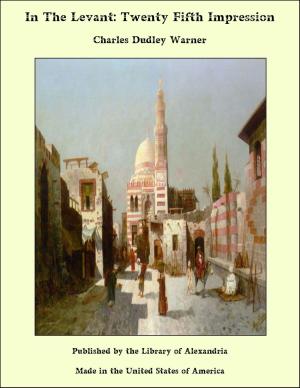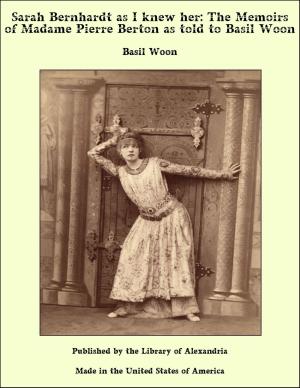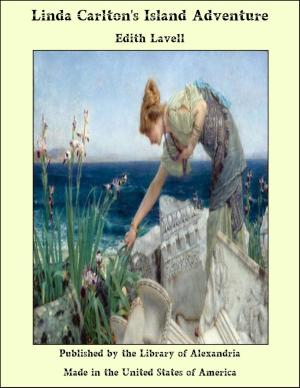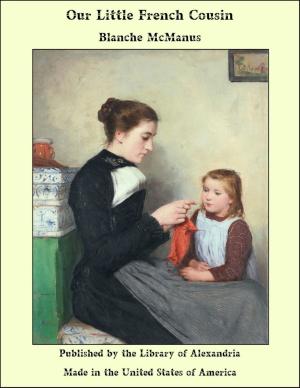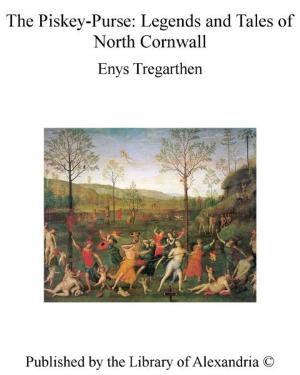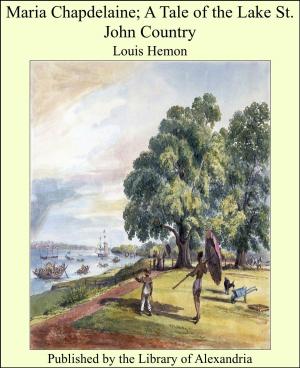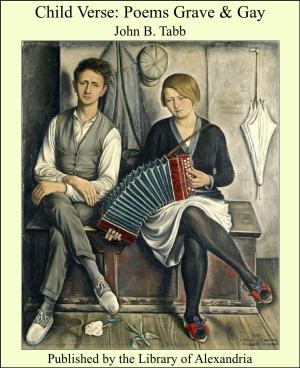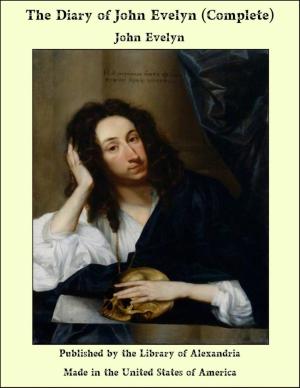| Author: | William Henry Giles Kingston | ISBN: | 9781465596260 |
| Publisher: | Library of Alexandria | Publication: | March 8, 2015 |
| Imprint: | Language: | English |
| Author: | William Henry Giles Kingston |
| ISBN: | 9781465596260 |
| Publisher: | Library of Alexandria |
| Publication: | March 8, 2015 |
| Imprint: | |
| Language: | English |
Ours was a capital school, though it was not a public one. It was not far from London, so that a coach could carry us down there in little more than an hour from the White Horse Cellar, Piccadilly. On the top of the posts, at each side of the gates, were two eagles; fine large birds I thought them. They looked out on a green, fringed with tall elms, beyond which was our cricket-field. A very magnificent red-brick old house rose behind the eagles, full of windows belonging to our sleeping-rooms. The playground was at the back of the house, with a grand old tulip tree in the centre, a tectum for rainy weather on one side, and the large school room on the other. Beyond was a good-sized garden, full of apple and pear trees, but, as we very seldom went into it, I do not remember its appearance. Perhaps, were I to see the place again, I might find its dimensions somewhat altered. The master was a first-rate schoolmaster. What his attainments were, I cannot say; but he understood managing boys admirably. He kept us all in very good order, had us fairly taught, fed us with wholesome, if not luxurious, food, and, though he used his cane freely, treated us justly. We held him in awe, and yet we liked him. It was after the summer holidays, when I had just got back, I heard that three new boys had come. In the afternoon they all appeared in the playground. They were strangers to each other as well as to us, but their similarity of fate drew them together. One was a slightly made, dark, and somewhat delicate-looking boy; another was a sturdy little fellow, with a round, ruddy countenance, and a jovial, good-natured expression in it, yet he did not look as if he would stand any nonsense; the third was rather smaller than the other two, a pleasant-looking fellow, and though his eyes were red with crying, he seemed to be cutting some joke which made his companions laugh. He had come all the way from Ireland, we heard, and his elder brother had that morning left him and gone back home, and that made him unhappy just then. He at once got the name of Paddy in the school. He did not mind it. His real name was Terence Adair, so sometimes he was called Paddy Adair.
Ours was a capital school, though it was not a public one. It was not far from London, so that a coach could carry us down there in little more than an hour from the White Horse Cellar, Piccadilly. On the top of the posts, at each side of the gates, were two eagles; fine large birds I thought them. They looked out on a green, fringed with tall elms, beyond which was our cricket-field. A very magnificent red-brick old house rose behind the eagles, full of windows belonging to our sleeping-rooms. The playground was at the back of the house, with a grand old tulip tree in the centre, a tectum for rainy weather on one side, and the large school room on the other. Beyond was a good-sized garden, full of apple and pear trees, but, as we very seldom went into it, I do not remember its appearance. Perhaps, were I to see the place again, I might find its dimensions somewhat altered. The master was a first-rate schoolmaster. What his attainments were, I cannot say; but he understood managing boys admirably. He kept us all in very good order, had us fairly taught, fed us with wholesome, if not luxurious, food, and, though he used his cane freely, treated us justly. We held him in awe, and yet we liked him. It was after the summer holidays, when I had just got back, I heard that three new boys had come. In the afternoon they all appeared in the playground. They were strangers to each other as well as to us, but their similarity of fate drew them together. One was a slightly made, dark, and somewhat delicate-looking boy; another was a sturdy little fellow, with a round, ruddy countenance, and a jovial, good-natured expression in it, yet he did not look as if he would stand any nonsense; the third was rather smaller than the other two, a pleasant-looking fellow, and though his eyes were red with crying, he seemed to be cutting some joke which made his companions laugh. He had come all the way from Ireland, we heard, and his elder brother had that morning left him and gone back home, and that made him unhappy just then. He at once got the name of Paddy in the school. He did not mind it. His real name was Terence Adair, so sometimes he was called Paddy Adair.

